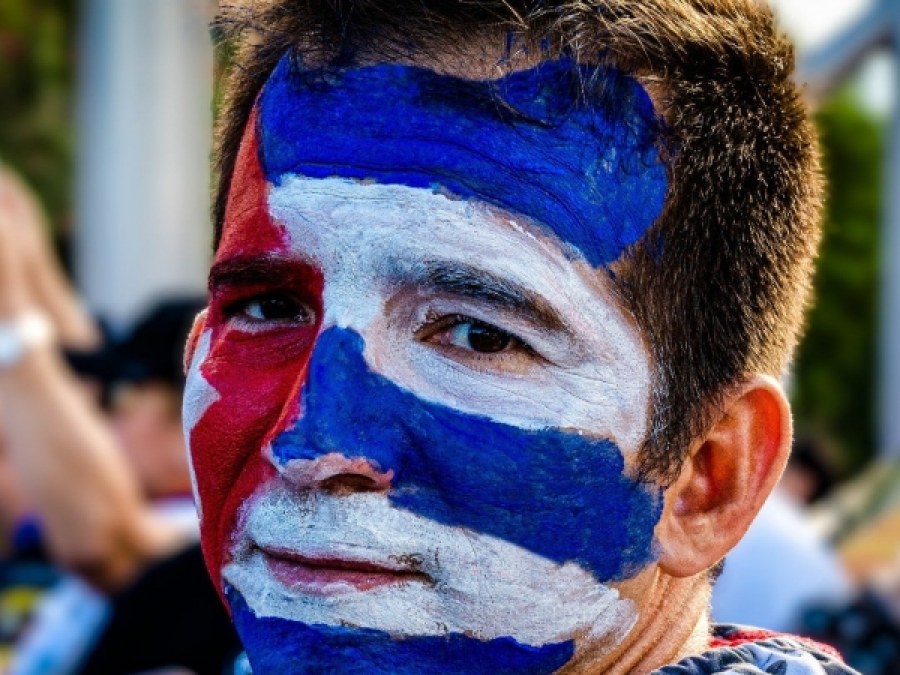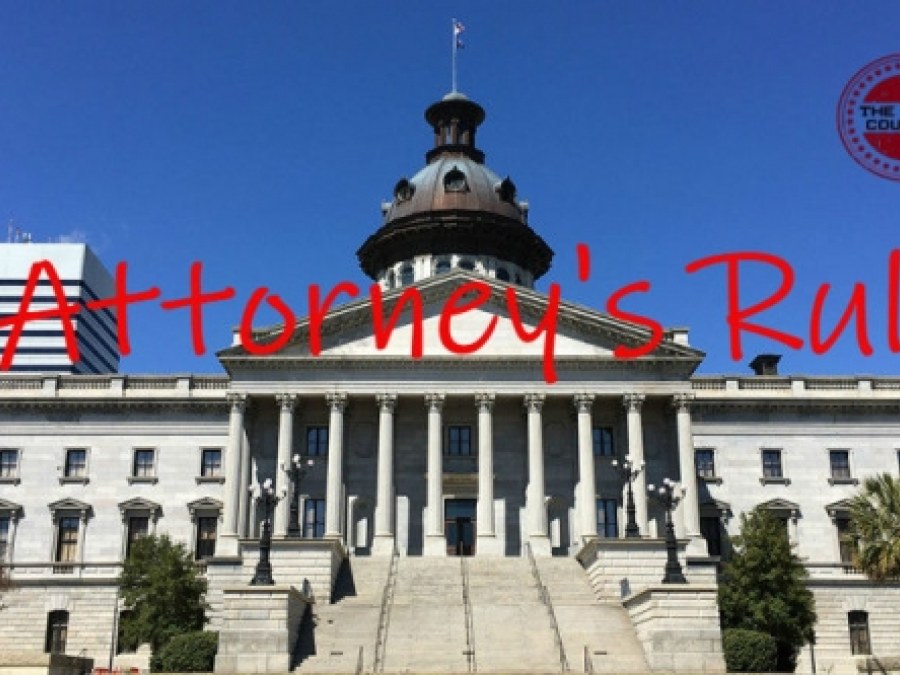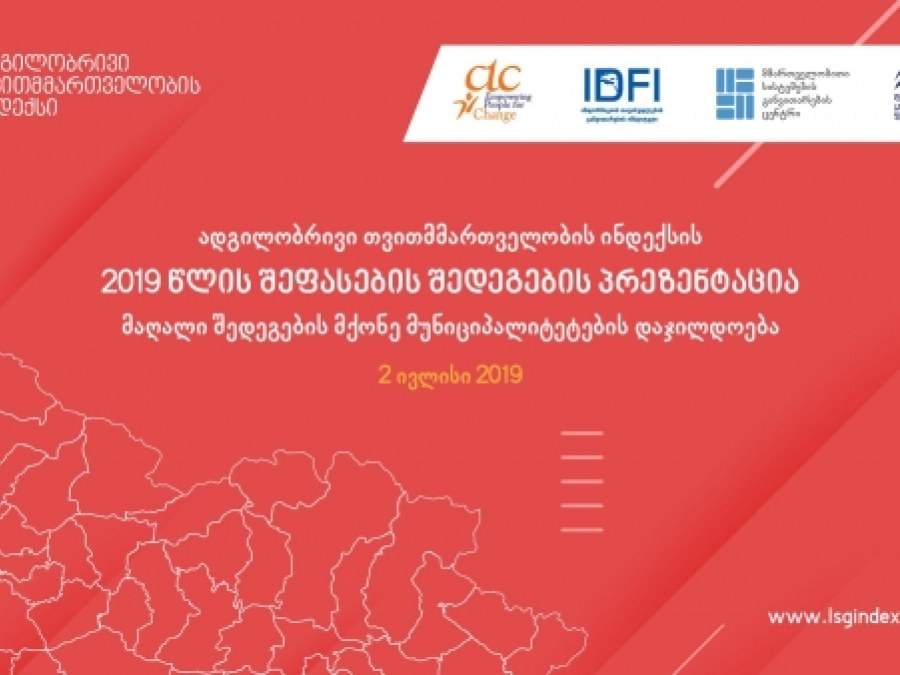
Nearly one year after the onset of the global pandemic and things are still not back to normal for much of the world. Scarce food, shortages in medical equipment, and general economic unease in the United States prompted a raft of government policies meant to shore up the public welfare system and keep the economy going. But for citizens of the island nation of Cuba, long-existing under oppressive communist rule, economic hardship, scarcity, and insecurity about tomorrow is not only normal, it’s a way of life for millions of Cubans trapped under the Díaz-Canel regime.
The pressures of such a harsh, unforgiving existence finally erupted again in 2020 in the SOS Cuba movement, one of the island nation’s largest popular uprisings since the revolution that brought Castro and his cronies to power. Centered in the capital of Havana and radiating out to the other cultural capitals of the world such as Miami, the plight of the Cuban people and their struggle for freedom came to the forefront as the world grappled with newfound realities already too familiar to those oppressed by Castro and his regime.
While much of the movement was prompted by continuing human rights violations and shortages in daily goods and supplies, the boldness of the SOS Cuba protests is what caught the eye of global observers. Carrying signs reading, "No tenemos miedo" (We are not afraid) and "Queremos libertad!" (We want freedom!), the protesters seemed to signal a fundamental break with the status quo imposed by the regime and, in the process, drew world attention to an ongoing human-rights struggle that has waned in recent years in terms of popular attention. Many popular goods and daily necessities are supplied via government-backed stores in Cuba and the inability of this logistics chain to grapple with COVID-19 pushed thousands over the edge in Havana to protest even though doing so is personally dangerous and risky.
One issue that the US is facing is how to balance the need for harsh economic measures to pressure the Díaz-Canel regime to change with humanitarian relief and economic necessity. Long reliant upon its diaspora community in the United States, cutting off the internet, communications and the sending and receipt of money in Cuba has not only exacerbated the situation but it has made it that much more difficult for the United States to have some degree of control over the regime.
The SOS Cuba movement highlights the state of the Cuban domestic population in order to hopefully get reforms in place. The movement has demonstrated that, if close linkages are utilized in an effective way, it is more effective to push for real political change and an end to any atrocities.
Photography by Vince Rubiera
[Submitted by Vince Rubiera]
---
https://www.local10.com/news/politics/2021/07/19/sos-cuba-movement-is-golden-political-opportunity-for-biden-experts-say/
https://www.distractify.com/p/what-does-sos-cuba-mean
By Bhakta Ghimire, USA
In December 2006, in the tiny Himalayan kingdom of Bhutan, the then ruling King, 51 years old Jigme Singye Wangchuk announced that he would abdicate his throne, setting the country to a path toward parliamentary democracy. Earlier in 1991 too, he had made similar type of announcement stating, “If the problem in south is not solved positively, I will abdicate my throne.” It was with the students of Sherubtse college, then only one in the country. He took the time frame of three years to do the job. But surprisingly in 2006, without hinting a bit of solution to the problem; without mending the fences for democratic setup of government, he just passed over his absolute, autocratic post to his son in the name of ‘abdication.’ He actually gave way to so-called parliamentary, by-party system of ‘democracy graced by an almighty king’. He and the palace have been just irrigating their vested inner desires through the channel of this fake parliamentary system called ‘Democracy’. The rigid royal followers are just utilizing the newfound democracy as a weapon to embark on others instead of making it rooted in the hands of Bhutanese people in real sense.
Anyone can say that the heart of Bhutan’s parliamentary democracy is plugged on to Jigme Singye’s remote brain. What a abdication he chose, when his own kind of kingship is taken over by the young Jigme Khesar?
Learned in Oxford with palace luxury, Khesar does not have proven experience of leading the constitutional monarchy with the basic tenets of traditional politics changed. That’s why he is just going as his father’s obedient pupil in ethno-politics. As a guardian of Bhutanese constitution, he seems less bothered about the refugee problem in general as well as the functioning of democratic organs that can ensure a good governance which Bhutanese people want in real sense and not a illusion.
Very desperately, we have to say that mainly India and the western world persuaded king Jigme assuming his steps as sacrifice to the people of Bhutan. The western world might have taken king Abdullah of Saudi Arabia as a role model. But, king Jigme and Bhutan can’t be compared with such a Middle East power block in politico-economic terms. Bhutan remained aloof for dozen of decades from the outer world and so was the political structure, economic activities, civic life and issues of government-citizen relations. For decades, the kingdom home to only six hundred thousand people, has been the adobe of interest by social scientists, independent journalists and even the natural scientists.
Unfortunately, a large chunk of the internal revenue and external grants from the donors went to the palace and its vicinity including the stagnant army. The country was kept off-limits to the world influence by means of restricting television and internet to the public until 1999. A few foreigners who traveled to Bhutan have always been the special guests and taken on a guided tour to some hinterlands of northern Bhutan, away from the human settlement, to view the chhortens, monasteries or dzongs having cultural value. Even some of them are told about the ‘insecurity’ in southern part, if they wish to go some tourist destinations other than the guided ones.
Until these days, in so-called parliamentary democratic system, Bhutan has no precise legal and constitutional provisions protecting freedom of speech, expression, association, and exhibiting dissidence incase of impeachment of fundamental rights of citizens. The forceful use of traditional dress code to other ethnic groups against their will is the violation of civil rights. It only shows the fake nationality superimposed by one ruling ethnic group to other ethnic groups. The direct interference of the home authority on practice of Nyngmapa sect of Buddhism by Sarchhop community is yet another violation of freedom to religion which the Bhutanese delegates to human rights forums have been promising every time.
Instead of promoting western notions like gross national product, gross individual earnings and its productive use, Jigme has created a hazy concept called ‘gross national happiness’ influenced in part by Buddhism, which is limited to the Royal elites.
According to political analysts, Jigme has explained gross national happiness as the “acquisition of contentment rather than capital”- feeling of well-being derived from social and economic development, preservation of culture and environmental conservation among other things. Western academicians pitched upon the idea, introducing annual conference on gross national happiness that features papers like “Planning for sustainable Happiness: Harmonizing our Internal and External landscapes”.
Bhutan’s rural and urban pictures are distantly different. In rural areas, Bhutan remained almost unaffected by the passage of time. Dzongs, the massive fortress and monasteries consisting of white stone citadels with imposing pagoda-roofs-towered over the landscape, pristine marvels compared to the ruined regions of Nepal, Tibet and northern India, much of which are scarred by logging and industry. Inside the dzong prayer halls, red robed novice monks chanted sutras and burnt smoky butter lamps in front of imposing statues of local deities. In the plains around the dzongs, men threshed rice by hand and cut new fields with small trowels, while local women shooed cows, boars and wooly yaks along the footpaths.
But, in Thimpu, the capital, there can be found that gross national happiness didn’t always live up to its advertising. Frustrated by the lack of economic opportunity, seeing the relative modernity of India on Indian TV broadcasts and chafing at restrictions on dress and speech, young Bhutanese have begun to lash out. In recent years once-sleepy Thimpu has witnessed a crime wave and one study showed that a significant number of young Bhutanese watch TV twelve hours a day. In downtown Thimpu, young class shucked their traditional Gho-checked, bathrobe-like outfits cut off at the knees-for jeans, T-shirts and mobile phone holsters at night. They prowled in bunches and mock-brawled in city squares, mimicking the American professional wrestling shown on TV. Adolescents have also developed major drinking problems- there can be seen young Thimpu residents spending evenings sucking down drugs and cough syrup and then fighting in the streets for real. One night, a few years ago a tourist saw two young men bloodying each other on the icy main drag. Like audiences of a film, referees waiting for combatants to fall on the ice, a small crowd let them fight until they hit the ground and then separated the boys.
Bhutan’s supposed uniqueness has also attracted upscale Western travelers who have brought on the very change Bhutan supposedly resisted. High-end hoteliers have set up shops in Bhutan, building luxurious resorts complete with Yoga classes, masseuses imported from Thailand, and pan-Asian cuisine that could have come straight from Bali (Indonesia). Celebrities have been decamping onto tiny Thimpu. One day, a tourist went hiking with a local Bhutanese guide, Ugyen. He hurried him up a mountain and when the tourist reached the top, Ugyen told him,”We’re making pretty good time…May be if we get to space 34 [ a local night club] early we’ll see Cameroon Diaz”. “Cameroon Diaz?” the tourist asked, befuddled. The idea of seeing a Charlie’s Angel in a place where some of the countries still lacked electricity seemed at the least, far-fetched. “Yeah, she was here recently”, Ugyen said to the tourist, ” She was on the dance floor all night at space 34, dancing real sexy with a group of people…..I think she had some rapper with her, too. You know that guy-Redman?” (The tourist later found out she was actually shooting an MTV show on the environment in Bhutan).
A depressing tale, perhaps-just another traditional culture that could not stand up to modernity, indeed when there are many Westerners in Bhutan who’d come to see the gross national happiness and left disappointed by Bhutan’s nightclubs, parties and cell phones. Except that in recent years the king had made propaganda that he himself apparently decided to grace his people that his subjects could embrace elements of the modern world without losing their unique identity.
Now, having known all these realities can’t we say Bhutan’s new hazarded parliamentary democracy is cornered in Thimpu, and it is unknown to the real Bhutanese people?
[Submitted by Bhakta P Ghimire]

In the past months several News Media outlets have posted articles concerning what is called the separation of government powers and the check and balances that are suppose to exist for the protection of citizens. Wikipedia defines this as: The separation of powers is a representation for the governance of a state. Under this model, a state's government is divided into branches, each with separate, independent powers and responsibilities so that powers of one branch are not in conflict with those of the other branches.
As we all learned this in school this was to ensure that a government was not allowed to use their powers against the people, it was a check and balance system each branch overseeing the other. But does this really exist in the South Carolina State Government? This being an election year one truly has to ask this question: Have the branches been taken over by Attorney/Legislators for profit?
In the South Carolina State Senate there are 18 Attorney/Legislators and 27 Non-Attorney Legislators. At first glance this seems alright to the average citizen, but as we began to take a closer look things didn't seem so straight forward. Most of these 18 Attorney/Legislators held key positions on the 15 Committees within the State Senate. Such as Senator Luke Rankin who sits on 5 of the 15 Committees including the Judiciary Committee and Ethics Committee. Senator Rankin's participation in questionable Judge Elections, and alleged cover ups of ethical violations has been reported on by several News Media outlets. We know of one Judicial election that Senator Rankin failed to inform the General Assembly about, concerning the highly questionable and possibly illegal actions of, Judge Monet Pincus, a Family Court Judge At Large, back in 2018.
It seems that Attorney/Legislators hold many of the seats on the 15 Committees governing the Senate side of the South Carolina State Government. As practicing attorneys these legislators have a conflict of interest, because that is where they earn their bread and butter. So, it's not a leap to imagine that these Attorney/Legislators would sway the laws in their favor to benefit them financially in their chosen carrier paths. On the Judiciary Committee alone 13 seats are held by practicing Attorney/Legislators out of the 23 seat committee. In fact nearly half of all the 15 Committees seats are held by Attorney/Legislators.
In the House of Representative side of the State Government the numbers look like this; there are 34 Attorney/Legislators and 90 Non-Attorney Legislators. Again they seem fair with a few exceptions such as the Judiciary Committee that consists of 23 seats and 19 are held by practicing Attorney/Legislators such as Rep. Beth Bernstein and Peter McCoy, who is the Chairman. And again it's not a leap to imagine these practicing Attorney/Legislators to manipulate the system for profit. Even in the Ethics Committee on the House side of the State Government 7 of the 10 seats are held by Attorney/Legislators.
Now it can be argued that Attorney's are ideal for these positions due to their knowledge of the law. And certainly not all of these Attorney/Legislators use their position for their personal bottom line. But how many of these Attorney/Legislators actually vote or even truly listen to their constituents? How many of them vote their personal believe instead of that of the people who but them in office?
Rep. Bernstein openly is against a Shared Parenting Bill (H3295) which is sponsored by another Attorney/Legislator Jason Elliott. Rep. Bernstein's Firm practices Family Law, and H3295 would change the Family Court system from a money maker, to even ground for children simply by guaranteeing a child's right to both loving and fit parents in their lives equally. It would also remove the long standing preponderance of the evidence standard, which is the lowest standard possible in Judiciary and only used in Family Courts, with a Clear and Convincing Standard. Not to mention 21 other States have already passed similar bills for the Best Interest of the Children.
There are Attorney/Legislators who do listen to the people they represent and even to South Carolina Citizen not within their Districts. Rep. Jason Elliott who took the time to listen to the hundreds of Parents (Custodial and Non-Custodial) demanding Shared Parenting for their Children. He was joined by other Attorney/Legislators such as Rep. Adam Morgan
Has the State Government forgotten "For the People, By the People" and replaced it with "For Attorneys, by Attorneys"? This election year we have noticed more common people running for State Government, such as John Gallman. Gallman, is running against Sen. Luke Rankin in Horry County's Seat 33. Gallman, among others running for positions throughout the State have stated they want Government to listen to the people once again. As South Carolina ranks among one of the most corrupt governmental states in the Country only time will tell if this election year changes anything.
[Submitted by Nicolas Knight]

“Work for Citizenship” A way to gain citizenship faster, legally and economically.
By Peter Lewit , Discourse and Reflection Aug. 23, 2017
We know there are numerous foreigners coming into the United States illegally. Surprisingly, many pay enormous sums of money to be smuggled across the border. These sums can be far greater than the approximate $725 cost to go through a process and paperwork to become a citizen. They pay the extra cost because it gets them into our country faster. A solution to this problem might take the form of a work for citizenship program. The primary component is the work camp. This work camp would be similar to construction and logging camps that were prevalent in the early days of building our country. It was an idea that President Roosevelt promoted when he created the Civilian Conservation Corps in the 1930’s.
As an example, foreigners intending to immigrate could apply to the program for a tour of three months. They must remain in the camp in a guarded arrangement until their tour is complete or they decide to return to their place of origin. A tour would also include passing their citizenship requirements. Illegals already here in the country could also apply. In their case they might go for an extended period of six months, the extra time being in the form of community (Govt) service in lieu of a fine, imprisonment or deportation. A basic understanding of English would also be required. Part of their wages would be garnished to cover camp, food and citizenship requirement costs. Quarters would be in a group camp format as suitable to the area. By consolidating the workers into camps they would not be incurring huge costs for meals, housing and transportation. They would still be able to send home to their family an allowance comparable to what they might earn with a green card. There would be areas for men and women and a choice of work for both. The work would be on government projects or camp duties, which may include assisting in cooking sanitation and the like. Evenings would be spent in their citizenship training and English.
While in the camp they would go through a vetting process and physical health inspection. Removal to the place of origin would occur if there was failure to pass our government’s standards. The whole program would be voluntary, details of time frames would be up to the federal government. It should be enticing so that all concerned parties benefit. Altogether, this program would use foreign nationals intending to immigrate, to work on U.S. government sponsored programs: “the wall”, for example. With the exception of building materials, it cuts government labor costs, provides a safe and secure environment for us and the workers. The country of origin will pay us by default; in other words, they lose a part of their workforce! Volunteers with varied experience could be sought to enhance the program. The federal government saves on costs for the project. The immigrants save costs, get in faster and above all, become legal!
[Submitted by Peter Lewit]

This is Richard “Doc” Parker. He was a combat medic with 4/12 Cav in Vietnam 1969-70. He received a Bronze Star for his gallant actions, but few know his courageous story and no one will ever hear these accounts uttered from his own lips. Being a combat medic alone should speak volumes about the caliber of man Richard is. He is a man who would sprint through a hail of bullets to save a life while chaos erupted around him. He would leap from the sanctuary of his tank and hurtle through a mine field to help his friends. These aren’t mere analogies. He did that. He damned the devil and stole from death. Yet he was willing to trade his own soul for the single life of one of his men. Despite how much he gave of himself, for Richard, it was never good enough. Men died. He felt as though he had failed his friends. Returning home people spat on him, made any number of derogatory remarks, and ostracized him for going to war. He believed he had failed his country. Over the years, Richard made many attempts to visit his friends from Vietnam and 4/12 Cav, but was so ashamed he couldn’t bring himself to meet them face to face. Richard was often the last person someone saw in life. Men dreaded a day they might see Richard staring down on them, but he was the one person everyone wanted walking by their side through hell. Having spent time in the U.S. Marines, I know the significance of people like Richard and what they represent to their men. My Corpsmen and I are still good friends to this day. I can’t possibly begin to describe the epitome they embody, or the love that we have for them. Medics mean the world to us. It goes beyond a brotherhood. I know the same applies to Richard and the love and respect his men have for him. “Doc” was the one responsible for delivering them home to their families. But he gave up so much. His PTSD has left him crippled because of his experience. He doesn’t believe he deserves respect for what he did because he never saw it coming back. It didn’t matter how many lives he saved, he only counted the ones he couldn’t. Those are the lives he remembers. Those are the lives that haunt him. Memorial Day is a time to honor those who lost their lives, but we should also revere those who gave everything they could so that men and women didn’t die on the battle field. We should honor men and women like Richard who did everything in their power so that we wouldn’t have to venerate a day like Memorial Day.
Submitted by Thomas R. Bloom
Climate Change and Implications for National Security By Thomas Omogi
Substantial evidence indicates that the 21st century will experience significant changes in climate, either warming or cooling. Despite the debates and because the changes have thus been gradual, the effects of climate change will likely be manageable for most countries. However, recent research suggests the gradual global warming has the potential to cause an abrupt slowing of the ocean’s thermohaline circulation resulting in reduced soil moisture, harsher winter weather, and more intense winds in areas that produce a significant percentage of the world’s food. Without adequate preparation, the result may be substantial loss in the human carrying capacity globally. This research proposes that when temperatures rise over a particular threshold, unfavorable weather conditions could occur relatively abruptly with unrelenting changes in atmospheric circulation instigating drops in average temperatures of 5 -10 degrees Fahrenheit within one decade. Paleo-climatic evidence points to altered climate patterns that spanned an entire century, such as they did when the thermohaline circulation abruptly collapsed over 8,000 years ago. An abrupt change in climate has the potential to destabilize the global political environment, leading the minor skirmishes, individual battles or all out war resulting from constraints like: Food shortages from decreased agricultural output Diminished availability and access to potable fresh water caused by changing precipitation patterns leading to droughts and floods Disruption in energy resources due to expanded sea ice and increased storms As carrying capacities decrease, political tensions could increase globally, which would like lead to two primary strategies: offensive and defensive. Countries with adequate resources would develop fortress mentalities to protect those supplies. Countries with inadequate supplies, especially those with long histories of enmity amongst neighboring nations, may instigate struggles for access to clean water, food or energy. Alliances might form around basic survival needs rather than ideologies, religions or national honor. Some current indications suggest that climate change has reached, or is close to reaching, that threshold over which the thermohaline conveyor may be impacted. These include documentation that melting glaciers may result in lower oceanic salinity levels and higher precipitation rates in some areas. This risk for a major abrupt change in global climate patterns, while relatively small and unclear, should be included in discussions regarding national security. Disruptions and violence resulting from the stresses produced by a diminished carrying capacity pose atypical threats, and military confrontation could be triggered by primal needs for resources such as food, water and energy. The change in motivation would change the geopolitical landscape, and previously stable countries may become vulnerable and unable to respond to early warning signs of national security threats. A long standing debate about how extensive these environmental disruptions would need to be in order to lead to conflicts. Some believe that the changes alone could lead to conflict, others argue that climate change could act as the trigger of clashes between nations with existing economic, social and political tensions. Regardless, severe environmental changes due to global warming seem like to intensify the degree of global discord. In the event of a significant and abrupt change in climate patterns, it is probable that energy, water and food resource constraints will be managed via economic, diplomatic and political pathways such as trade embargoes and treaties. Over time however, clashes of water and land use are likely to grow in severity and violence, as nations become increasingly distressed. Australia and the United States will most likely adopt the defensive, fortress mentality due to their self-sufficiency and abundant resources. With its wealth, diverse agricultural regions, technology and other resources, the United States is equipped to survive shorter growing seasons and harsher weather conditions without catastrophic consequences. Borders would likely be strengthened to stem the flood of starving immigrants from Mexico, the Caribbean islands, and South America. Energy supplies would be complemented with alternates such as renewable and nuclear energy and perhaps additional contracts with Middle Eastern petroleum producers. Skirmishes over agricultural support, fishing rights, water rights, and disaster relief may become common, while tensions between Mexico and the United States would increase if the U.S. reconsiders its adoption of the 1944 treaty addressing water flow from the Colorado River. Relief workers would need to respond to flooding in the south east states and drought relief in the drier inland regions. However, even in a long-standing state of emergency, the United States would be well positioned versus other countries. The obdurate problem facing the U.S. might be responding to increasing military tensions in other regions of the world. As weather-related disasters, famine and disease grow due to climate change, other nations may exceed their carrying capacity, resulting in desperation and an offensive approach to obtain additional supplies. For example, eastern European countries may look to Russia if their own supplies of food, water and energy fall drastically. Or perhaps Japan, experiencing flooding along coastal regions and contamination of its potable water supply, may look to Sakhalin Island (Russia) for its gas and oil reserves to operate desalinization plants. China, India and Pakistan, nuclear powers, might clash with neighbors as refugees arrive at borders and to gain access to rivers and arable acreage. Portuguese and Spanish fishermen might clash over rights leading to conflicts on the ocean. With more than 200 river basins situated along multiple countries, disagreements over access to clean water for drinking, transportation and irrigation would escalate. For example, the Nile flows through nine nations, the Danube runs through twelve countries, and the Amazon flows through seven separate nations. Some recommendations to prepare for threats to national security due to climate change include: Implement improvements to predictive climate models. In the era of big data and predictive analytics weather models can produce better results by including current, historical and predictive forces, improve understanding of global warming, and more accurately predict abrupt changes. Integrate data to create more comprehensive predictive models of global warming effects, including the potential economic, ecological, political and social impact resulting from abrupt change. Sophisticated scenarios and models should be created to anticipate regional weather conditions, and a system should be developed to identify the impact of global warming on world-wide distribution of economic, social and political powers. The predictive quality of the analytics can be utilized to minimize potential sources of conflict. Utilize vulnerability metrics to measure a nation’s potential vulnerability to the effects of climate change. Metrics should address impact on existing water, agricultural and mineral resources, social cohesion, technological capabilities and adaptability. Develop and train for adaptive responses. Response teams should be created to plan and prepare for climate driven change such as epidemics, massive migrations and shortages in water and food supplies. Explore regional and local implications of global warming, such as potential increases in pest and insect prevalence and the severity of alterations in agricultural productivity as a result. Analysis should be done to identify which regions and crops are vulnerable and the potential acuteness of the impacts. Identify options for geo-engineering for some control over climate. Suggestions have arisen that warming the atmosphere through the release of gases, including hydrofluorocarbons, might offset the effects of atmospheric cooling. Conclusion It may be distinctly possible to identify imminent abrupt changes in climate soon, and those predictions will increase in reliability and clarity. In addition, sophisticated models will enhance to potential to predict climate change consequences. Nations should prepare to take urgent action to mitigate the most severe impacts. Diplomatic efforts may minimize the potential for conflict, although large population migrations are most likely inevitable. Preparing adaptive responses will better manage those migrations and lessen border tensions. New security agreements addressing specific needs for food, water and energy are advisable, as conflict and disruption will be endemic characteristics of life in a global environment affected by intense climate changes.
Submitted by Thomas Omogi


















